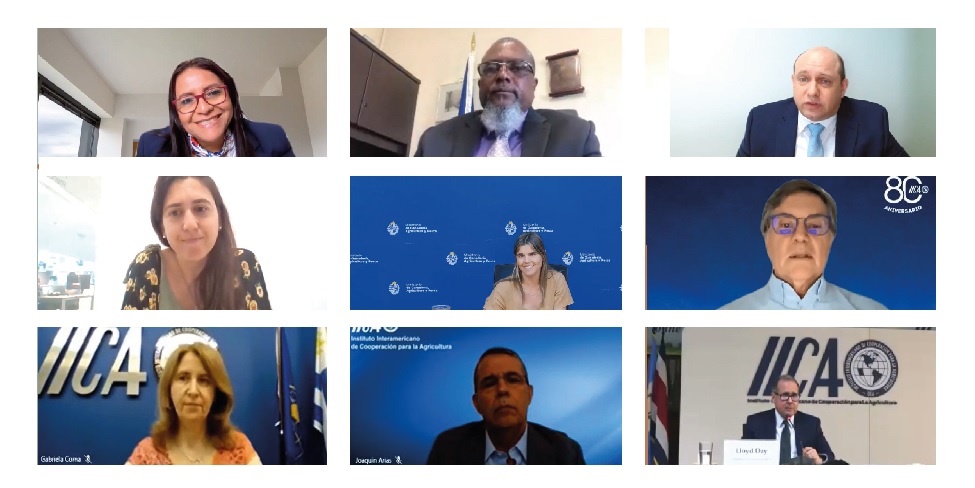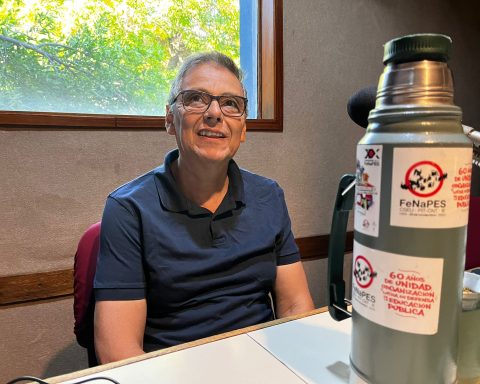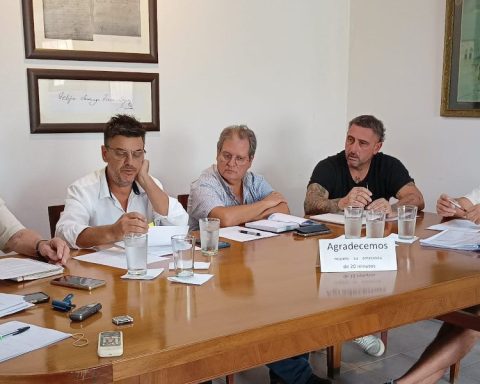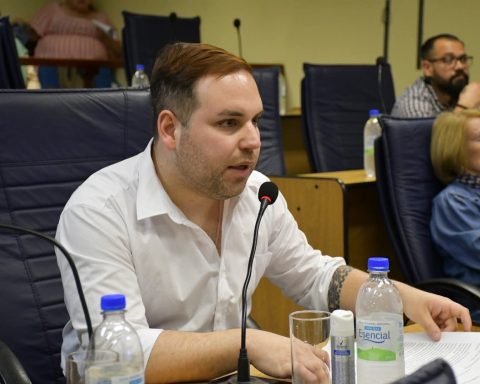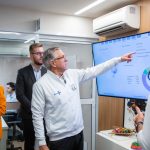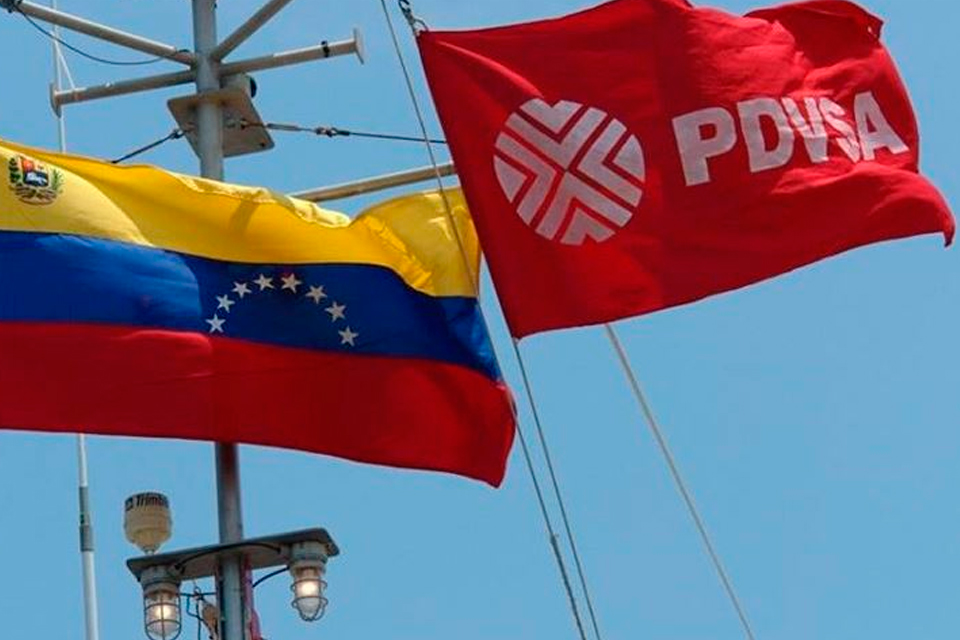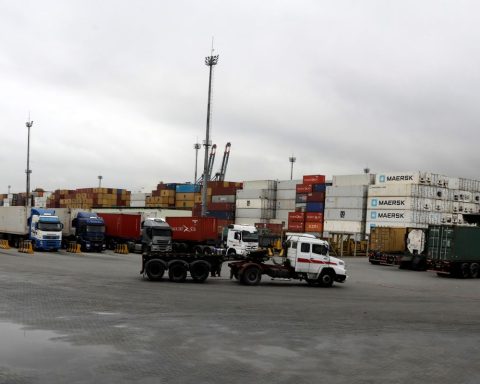IICA: “72 million people living in rural areas of Latin American and Caribbean countries lack connectivity with minimum quality standards.”
To guarantee Quality internet access in rural areas of Latin America and the Caribbean is of strategic importance for social and economic development in the territories where food and nutrition security is defined in the region and in much of the worldassured ministers of Agriculture and experts from the public and private sectors.
Verónica Durán, director of the Office of Agricultural Programming and Policy of the Ministry of Livestock, Agriculture and Fisheries of Uruguay, participated for Uruguay.
That conclusion was reached by leaders of agricultural policies in the region, businessmen and experts who participated in a high-level panel convened to present the document Rural connectivity in Latin America and the Caribbean: current situation, challenges and actions for digitization and sustainable developmentprepared by the Inter-American Institute for Cooperation on Agriculture (IICA), together with its partners the World Bank, Bayer, the Development Bank of Latin America (CAF), Microsoft and Syngenta.
This new document, which updates the data published by IICA in October 2020 in the document Rural Connectivity in Latin America and the Caribbean – A bridge to sustainable development in times of pandemicreveals that some 72 million people living in rural areas of Latin American and Caribbean countries lack connectivity with minimum quality standards.
The participants agreed that digital transformation is driving an unprecedented technological revolution in the worldTherefore, promoting connectivity and the development of digital skills constitute an essential and priority condition for the development of productive, social and community life in the rural world.
Participants included Indar A. Weir, Minister of Agriculture and Nutritional Food Security of Barbados; Laura Suazo, Secretary of State in the Offices of Agriculture and Livestock of Honduras; Y Verónica Durán, director of the Office of Agricultural Programming and Policy of the Ministry of Livestock, Agriculture and Fisheries of Uruguay. Representing the private sector, Beatriz Eugenia Arrieta, regional manager of Associations of the Food Value Chain of Bayer; Herbert Lewy, general manager of Smart Agriculture and Bioeconomy for Latin America at Microsoft; and María Virginia Passaniti, manager of Digital Solutions of Syngenta Argentina.
Manuel Otero and Lloyd Day, Director General and Deputy Director General of IICA, respectively, gave the welcoming remarks while the details of the document were presented by its authors: Sandra Ziegle, IICA specialist in Rural Connectivity, and Joaquín Arias, coordinator of the Observatory. of Public Policies for Agrifood Systems (OPSAa).
Digitization to get out of poverty
Secretary Suazo, who is chair of the Executive Committee of IICA, pointed out that the issue of rural connectivity is central to the countries of Latin America and the Caribbean.
“Society needs to be transformed from a very tragic life condition that is poverty. In our countries we experience it to different degrees and I am sure that digitization can help the positive change that we hope to promote”, said Suazo, the first woman in charge of the Agriculture and Livestock area in Honduras.
Suazo argued that, just as digital technology has made enormous advances possible in different fields, it is also the key to carrying out intelligent agriculture in Latin America and the Caribbean that allows increasing productivity and competitiveness.
His colleague Indar Weir expressed strong support for the decision of IICA and its allies to make an effort to place this issue on the public agenda in the region. “After the Covid-19 pandemic we had to make changes in our lives. One thing we have learned is that while the rest of the population had to stay in their homes, the farmers kept going to ensure the food supply.“, he claimed.
Weir added that digital tools enhance their importance in a food production that deals with the impact of climate change, with the increase in prices of inputs due to the war in Eastern Europe and with the appearance of new diseases.
By your side, Verónica Durán pointed out that the issue is of central importance for Uruguay. “For more than 20 years – he affirmed – we have carried out a State policy that has allowed us to establish lines of action and we can say that the implementation of the digital agenda has been successful”.
Durán considered that digital transformation is an opportunity not only for increase productivity in agriculture, but also to improve the management of natural resources, optimize the use of agrochemicals and, in short, reduce the environmental impact.
The importance of a political agreement
Manuel Otero explained that in 2020, as a result of the pandemic, IICA, along with other institutions and allies, made a strong commitment to establishing an agenda on rural connectivity and the situation of women and youth in the face of the advancement of new technologies and the need to develop digital skills in the population.
“The digitization process advances at different speeds in rural areas. We have received invaluable support from the World Bank, CAF, Bayer, Microsoft and Syngenta for this study that updates data, provides relevant information and collects experiences that are being developed in the region”, he added.
Knoll advocated promoting a political agreement so that the issue definitively enters the agenda and recalled that at the last G20 Summit, in Bali, world leaders recognized the importance of digital transformation to achieve the Sustainable Development Goals (SDG).
Lloyd Day pointed out that IICA, together with countries, producers and companies in the food sector, is telling the world that agriculture is part of the solution to global challenges, but for that it needs technological tools.
“We have seen tremendous advances in connectivity during the pandemic. Must give continuity to public policies and develop plans to integrate agriculture with education and actions to empower women and youth. We have made these commitments at the request of the countries,” she concluded.
